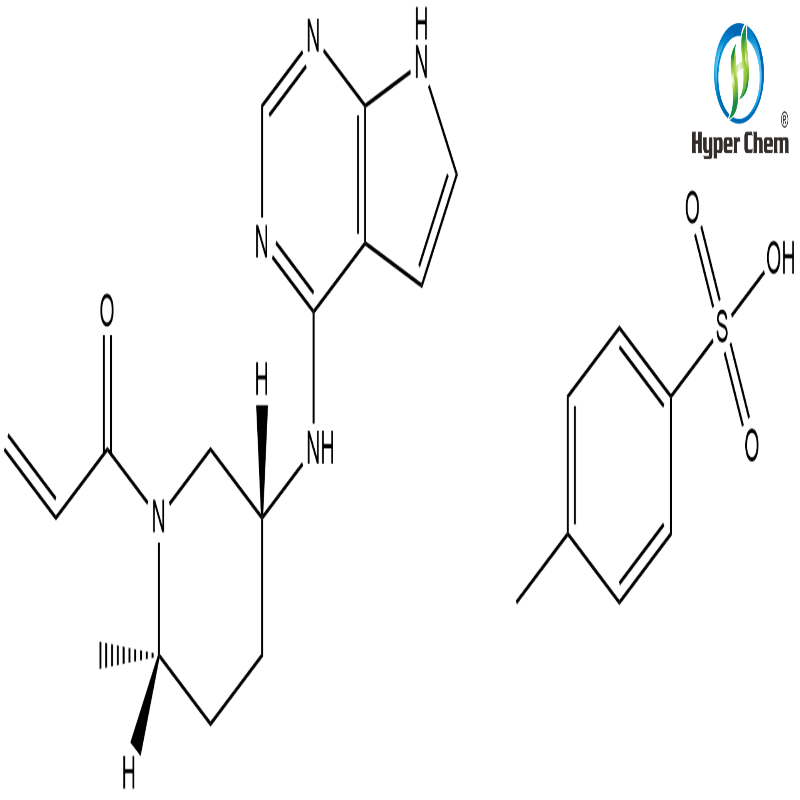-
Categories
-
Pharmaceutical Intermediates
-
Active Pharmaceutical Ingredients
-
Food Additives
- Industrial Coatings
- Agrochemicals
- Dyes and Pigments
- Surfactant
- Flavors and Fragrances
- Chemical Reagents
- Catalyst and Auxiliary
- Natural Products
- Inorganic Chemistry
-
Organic Chemistry
-
Biochemical Engineering
- Analytical Chemistry
-
Cosmetic Ingredient
- Water Treatment Chemical
-
Pharmaceutical Intermediates
Promotion
ECHEMI Mall
Wholesale
Weekly Price
Exhibition
News
-
Trade Service
October 22, 2020 // -- Over the past 20 years, the development and choice of individualized therapies for lung cancer patients has come a long way, with non-small cell lung cancer remaining the leading type of lung cancer and the leading cause of cancer-related deaths worldwide. Choosing the right treatment for every patient with non-small cell lung cancer may not be easy, as biomarkers in the patient's body change during treatment, leading to the failure of the treatment, and scientists from the Moffitt Cancer Research Center have developed an invasible and accurate way to analyze tumor mutations and biomarkers in the patient's body to help determine the best treatment for the patient.
Photo Source: The Pixabay/CC0 Public Domain study, published in the international journal Nature Communications, explains how deep learning models can be used to identify non-small cell lung cancer patients who are sensitive to tyrosine kinase therapy with the help of electron ocococcytographic technology (PET/CT) and which patients can be tested for immunology Inhibitor therapy benefits from the treatment of the model, which uses the radioactive tracer element 18F-fluorodeoxyglucose (18F-Fluorodeoxyglucose, a class of sugar molecules) for PET/CT imaging, and 18F-FDG PET/CT imaging to explain abnormal glucose metabolic site and help accurately analyze the characteristics of tumors in the patient's body.
researcher Dr Matthew Schabath said the imaging technique, called 18F-FDG PET/CT, is widely used to determine the stage of disease in patients with non-small cell lung cancer, and the use of radioactive tracer elements of glucose is often activated by EGFR and the patient's body. The effect of inflammation, EGFR (skin growth factor subject) is the most common mutation in the body of non-small cell lung cancer patients, EGFR mutation status is considered to be the predictor of patient therapy, patients with active EGFR mutations tend to show better response to tyrosine kinase therapy.
in this study, researchers used retrospective data from patients with non-small cell lung cancer from two institutions in China to develop an in-depth learning model based on 18F-FDG PET/CT, which is based on the Shanghai Lung Hospital and the Fourth Hospital affiliated with Hebei Medical University. For each patient to produce an EGFR deep learning score to classify the EGFR mutation status of the patient's body, once created, the researchers were able to use data from patients in two other institutions, the Fourth Hospital affiliated with Harbin Medical University and the Moffitt Cancer Research Center.
researcher Wei Mu said previous studies have used radiology as a non-invasive means to predict EGFR mutations in a patient's body, but our analysis can more accurately predict mutations in a patient's body's EGFR than other studies, while also producing a number of advantages, including training, confirmation, and testing of multi-queue data from the four institutions for deep learning scores, which may increase the versatility of the model.
Researchers found that deep learning scores were often positively related to long-term progression-free survival rates in patients treated with tyrosine kinases, and a negative correlation between long-lasting clinical benefits and longer progression-free lifetimes in patients receiving immunosuppressant immunotherapy, and later researchers hope to conduct more in-depth studies to confirm that the new model can indeed serve as a clinical decision support tool for evaluating different therapies.
() Original source: Mu, W., Jiang, L., Zhang, J. et al. Non-invasive decision support for NSCLC treatment using PET/CT radiomics. Nat Commun 11, 5228 (2020). doi:10.1038/s41467-020-19116-x







